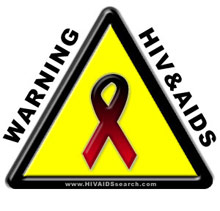 |
 |
 |
 News from Around the Americas | February 2005 News from Around the Americas | February 2005  
Public Health Agency of Canada Seeks Genetic Info from U.S. on New Resistant Hiv Strain
 Helen Branswell - Canadian Press Helen Branswell - Canadian Press

The Public Health Agency of Canada has asked its U.S. counterpart for the genetic blueprint of a new and potentially frightening strain of HIV which has emerged in New York City.
 
Toronto - Dr. Frank Plummer, scientific director of the agency's national microbiology laboratory, said authorities here want the information so they can look to see if there is any sign anyone in Canada had been infected with a similar strain.

"We're hoping to get more information on the actual genetic sequence of the strain, the parts of the genome that have been sequenced, so we'll be able to look at our Canadian databases to see if there's evidence of this in Canada," Plummer said in an interview.

The agency asked the U.S. Centers for Disease Control in Atlanta for the genetic information; the CDC must get permission from New York state health authorities before it can pass on the data. Plummer said he expected the public health agency will obtain the sequence data either late this week or early next.

There has been no suggestion from U.S. public health authorities that any Canadians were among the scores of people with whom the infected man had unprotected sex, Plummer said.

Public health officials in New York announced Friday they had uncovered a case of a man infected with a multi-drug resistant strain of HIV and that his disease progressed from HIV to AIDS extremely rapidly.

The success of HIV drug cocktails has stretched the median time from HIV infection to development of full-blown AIDS to 10 years. But this man, who remains unnamed, may have progressed to AIDS within two months of becoming infected.

Both multi-drug resistant strains and strains that lead to rapid progression of disease have been seen before. But the possibility that a strain has both characteristics raises the nightmare spectre of a return to the days when HIV infection was not treatable.

Authorities insist it has not yet been proven this strain of HIV has both those features. But public health officials on both sides of the border are on the lookout for additional cases.

"This is obviously concerning," said Dr. Perry Kendall, chief medical officer of health for British Columbia.

But Kendall noted it's not clear how big a threat this case might be. Six cases of multi-drug resistant HIV were logged last year in B.C., but they did not appear to spread effectively through the community. And that might be the case in this circumstance, he said.

"It could be the start of a big deal or it may not be," Kendall said from Vancouver.

Plummer, who has a long and distinguished career as an HIV researcher, believes the man's rapid progress to AIDS was likely the product of his weakened immune system, not a trait of the virus itself. But he believes the case should be an important wake-up call to remind the public that HIV cocktails only buy time.

"These drugs are not cures for HIV. They're really palliative treatments," he said. "The real solution is to implement public health measures that prevent transmission." | 
 | |
 |



